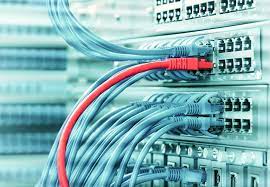Networking cables are essential components of any computer network, allowing data to be transmitted from one device to another. These cables come in different shapes and sizes, but what makes them special is their ability to transmit data reliably and quickly over long distances.
This post will explore the key features that make networking cables special and why they are so important in modern computer networks.
Speed and bandwidth
One of the most important features of networking cables is their ability to transmit data at high speeds. Different types of cables have different maximum speeds, with the most common Ethernet cables (such as Cat5e, Cat6, and Cat7) supporting speeds of up to 10 Gbps or more. The bandwidth of a cable is also an important consideration, as it determines how much data can be transmitted at any given time.
Reliability and durability
Networking cables are designed to be durable and reliable, ensuring they can withstand daily use's wear and tear. They are typically made from high-quality materials such as copper or fibre optic strands, which resist bending, twisting, and other types of physical stress. Additionally, these cables are often shielded to protect against interference from external sources.
Compatibility
Networking cables are designed to be compatible with a wide range of devices, including computers, routers, switches, and other networking equipment. They use standardized connectors (such as RJ-45 for Ethernet cables) to ensure that they can be easily plugged into different devices without special adapters.
Flexibility and versatility
Networking cables come in different lengths and configurations to suit various applications. Some cables are designed for tight spaces or harsh environments, while others are intended for long-distance or high-speed data transfer. Additionally, these cables can be used in a variety of networking applications, from home networks to large enterprise networks.
Security
Another important aspect of networking cables is their ability to provide secure data transmission. Some cables, such as fibre optic cables, use light to transmit data, making it difficult for hackers to intercept or tap into the data being transmitted. Additionally, some networking cables use advanced encryption technologies to ensure that data is secure and protected from unauthorized access.
Cost-effectiveness
Networking cables are a cost-effective way to transmit data compared to wireless technologies such as Wi-Fi or cellular networks. While wireless technologies offer the convenience of mobility, they can be more expensive to set up and maintain, especially for large networks. Networking cables, on the other hand, offer reliable and fast data transmission at a lower cost, making them an attractive option for many organizations.
Conclusion
In conclusion, networking cables are special because of their ability to transmit data quickly and reliably over long distances. They are designed to be durable and compatible with a wide range of devices, making them an essential component of modern computer networks. Whether you're setting up a small home network or a large enterprise network, choosing the right networking cables from reliable Networking Cables Manufacturers is crucial for ensuring optimal performance and reliability.


